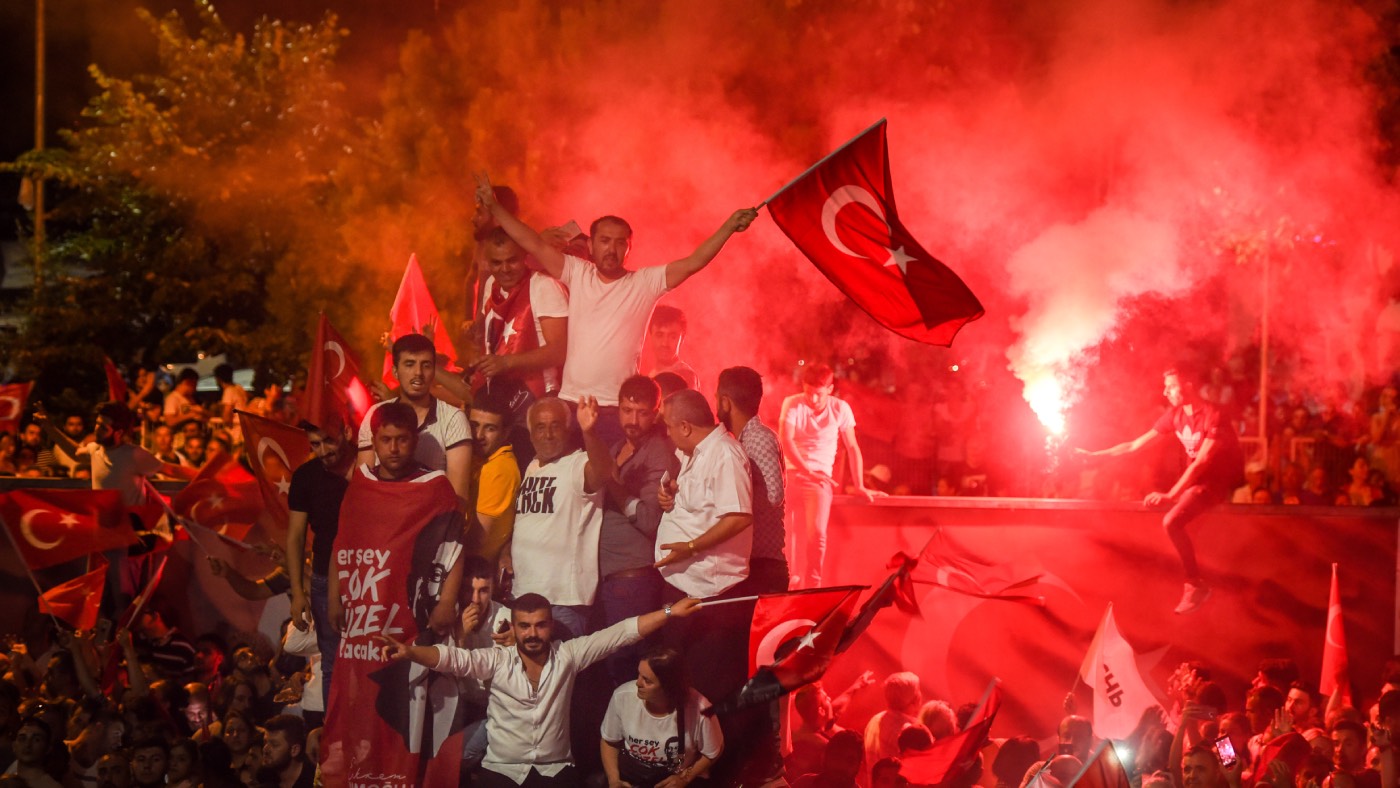Why did Turkey's ruling party lose the Istanbul mayoral election?
Result is a significant blow to President Recep Tayyip Erdogan

A free daily email with the biggest news stories of the day – and the best features from TheWeek.com
You are now subscribed
Your newsletter sign-up was successful
Turkey's ruling party has lost control of Istanbul after a re-run of the city's mayoral election.
With nearly all ballots counted, the candidate for the main opposition party, Ekrem Imamoglu, has won 54% of the vote. His unexpected victory in March had been annulled after the ruling AK party complained of irregularities.
Binali Yildirim, the Turkish president's chosen candidate, has attracted 45% of the vote.
The Week
Escape your echo chamber. Get the facts behind the news, plus analysis from multiple perspectives.

Sign up for The Week's Free Newsletters
From our morning news briefing to a weekly Good News Newsletter, get the best of The Week delivered directly to your inbox.
From our morning news briefing to a weekly Good News Newsletter, get the best of The Week delivered directly to your inbox.
The result means Turkey's largest city will not be governed by Erdogan's AKP party for the first time in a quarter of a century.
It also has huge national significance. President Recep Tayyip Erdogan, who has tweeted his congratulations to the winner, had previously said “whoever wins Istanbul, wins Turkey”.
The Times agrees, saying this morning that Istanbul is a “bellwether for national power”.
The Guardian calls the result “a landmark victory in a country where many feared democracy was failing,” while Sky News describes it as “a major blow for Turkish President Recep Tayyip Erdogan”.
A free daily email with the biggest news stories of the day – and the best features from TheWeek.com
In a victory speech, Imamoglu said his win marked a “new beginning” for both the city and the country.
“We are opening up a new page in Istanbul,” he said. “On this new page, there will be justice, equality, love.”
As his supporters chanted: “Mayor again! Mayor again!” he added: “You have protected the reputation of democracy in Turkey with the whole world watching," he told the crowds outside the headquarters of the Republican People's Party.
He added that he was willing to co-operate with Erdogan, saying: “Mr President, I am ready to work in harmony with you.” However, there is doubt that the president will cooperate with him.
Hundreds of supporters of Imamoglu gathered on the streets of his stronghold, Besiktas. “The cautious optimism that was prevalent during the early stages of vote counting has given way to a mood of total jubilation,” says Cagil Kasapoglu. One reveller told The Guardian: “This has brought people hope.”
The Times says that Turkey’s “faltering” economy is “a key factor in Mr Erdogan’s slipping popularity”. It points out that a 30% collapse in the value of the lira over the past year has left many businesses struggling to repay foreign currency debt.
CNN adds that “a political system that has in recent years skewed toward one-man rule and allegations of municipal corruption,” led to the backlash against Erdogan.
The BBC's Turkey correspondent focuses on the role of the winner, explaining that Imamoglu “gave people the profoundly positive message they craved and rebuffed smears with smiles”.